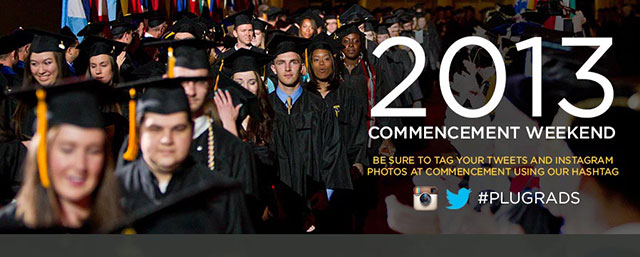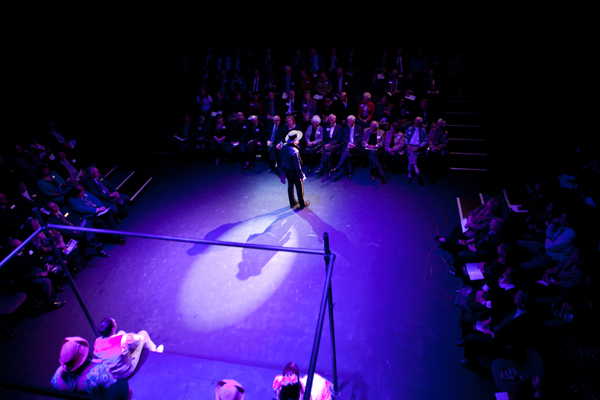Page 108 • (1,726 results in 0.054 seconds)
-
sections. In the first half of the course, we will read scripture, theology, and social theory as we work to define religion, to understand the origins of violence motivated by religion, and to analyze terrorism associated with religion. In the second half of the course, we will read historical essays and ethical arguments about the role of religion and violence in American history. Students will write two major essays, contribute regularly to online and in-person class discussions, and lead a seminar
-
Musical Arts or Bachelor of Arts degree. These music degrees combine music with a “related field.” Instead of a senior recital, you’ll do a “capstone” presentation showing synthesis between music and your other area of interest. The basic music core curriculum is required but overall there are less hours of music. You can also get a degree in music education, which will equip and certify you to teach K-12 music, instrumental or choral. PLU Jazz Questions and AnswersWhat does jazz at PLU offer compared
-

person I am now, a much more confident and self-assured individual compared to who I was in September 2009 as a first-year student. What’s next? I plan on taking the year off to work in a field related to sustainability or geology before attending Colorado State University to attain my master’s degree in watershed science, focusing on alpine hydrology. Bernice Monkah, Bachelor of Arts in economics with an mathematical economics concentration and political science with a minor in mathematics Why PLU
-
the rapidly changing Norwegian culture and society and Norway’s active engagement in defining and redefining its roles internationally and within its borders Examine the Norwegian approach to contemporary issues in a central location with engaged faculty whose specialties include Peace and Conflict Studies, African Studies, International Relations, Middle East Studies, Polital Theory and more Study in English alongside Norwegians majoring in Peace & Conflict and International Studies Immerse
-
fishes. My research involves field collection of specimens, DNA sequencing, and specimen-based morphological work. My past research projects have involved using morphological and molecular data to reconstruct evolutionary relationships, cryptic diversity, and spine morphology in madtom catfishes. I am currently working on the phylogeography of fishes distributed in the Mississippi Embayment, a region containing multiple lowland streams in western Tennessee and Mississippi. The goal of this project is
-
position, effectively using evidence relevant to the context. Students will implement strategies for revising the content, structure, and organization of their ideas. FYEP 102; the DJS Seminar (4): Students will engage with themes and questions related to Diversity, Justice, and Sustainability, and their intersections, via the methods and topics of a particular discipline or field of study. After completing FYEP 102: Students will learn about diversity, justice, and sustainability, and their
-

capital projects funded during the campaign serve the athletic, recreational, physical education and wellness needs of the campus. Wilson Construction and the Don ’74 and Kim ’76 Wilson family made the lead gift to fund the construction of an all-weather, multipurpose athletic field on lower campus. Construction on the field and an adjacent new grass field will be complete in the fall. The gymnasium floor in Olson Auditorium was resurfaced. Olson upgrades also include new bleachers, remodeled locker
-

continuing that tradition by delving into indigenous studies research and education — a field that’s gaining ground at the university.Kaja Gjelde-Bennett ‘17 and English faculty member Wendy Call were both awarded 2018 Fulbright grants to pursue research trips abroad. Gjelde-Bennett is working toward a master’s degree in Norway by exploring her heritage — the Sámi people’s language and history. Call will be translating indigenous women’s written work into English and teaching a course in Colombia. With
-
lectures continue Dr. Ingram’s work in extending understandings of all religions through scholarship and teaching in comparative religions and interreligious dialog, by bringing to campus scholars whose work exemplifies the comparative, descriptive, and analytic methods that define the field. Video(s): Imam Jamal Rahman on the Many Faces of Interfaith Selected Publications: Sacred Laughter of the Sufis: Awakening the Soul with the Mullah’s Comic Teaching Stories and Other Islamic Wisdom (Skylight Paths
-
Earth science and life with the goal of understanding what makes a planet hospitable. Topics will include atmospheric sciences, oceanography, soil science, ecology, planetary science, plate tectonics, deep and early Earth processes, and volcanism. This program will include a 5 day field trip to the Western US. Competitive students will be interested in how the Earth works and be willing to travel. Majors from physics, chemistry, geology, environmental science, biology, computer science, or related
Do you have any feedback for us? If so, feel free to use our Feedback Form.


